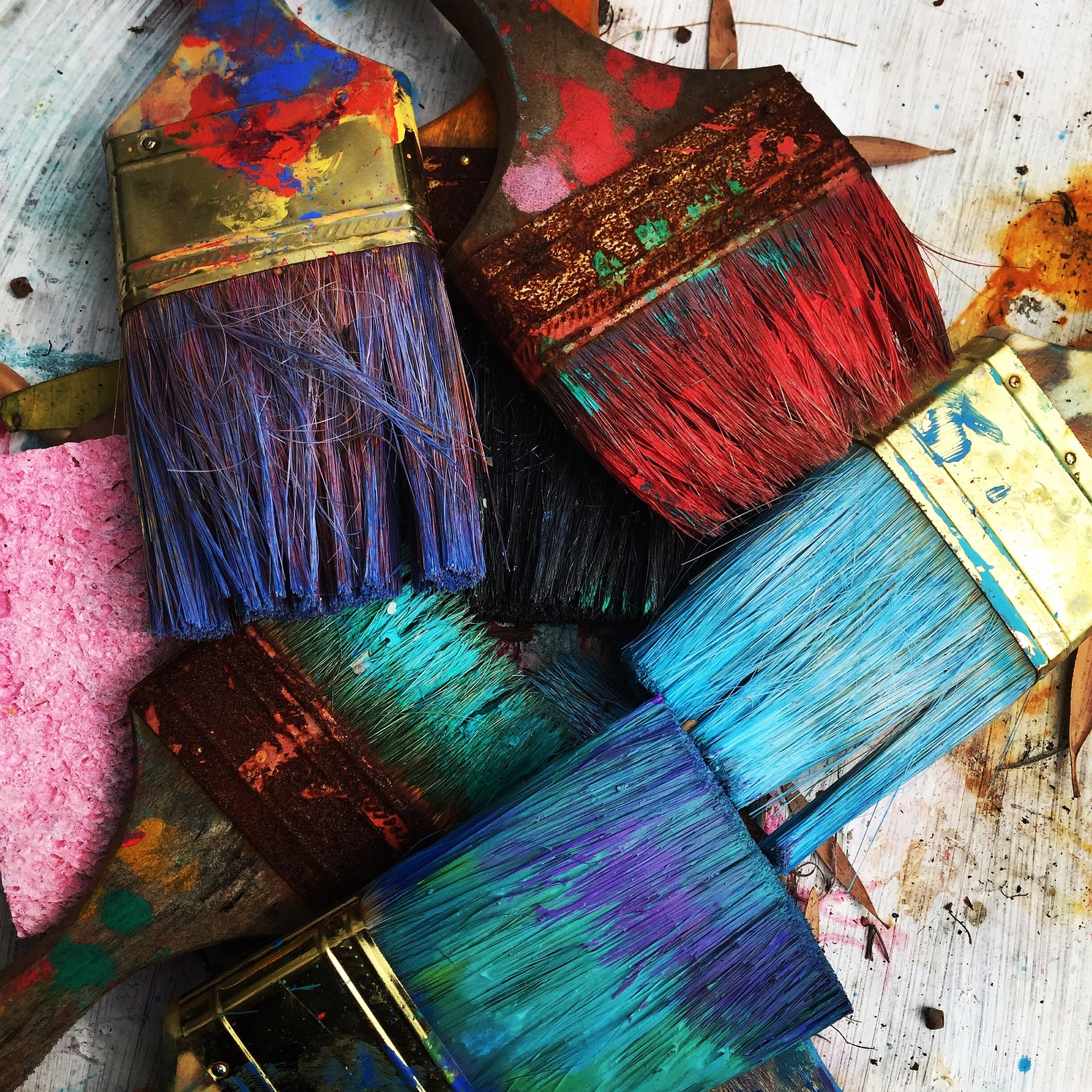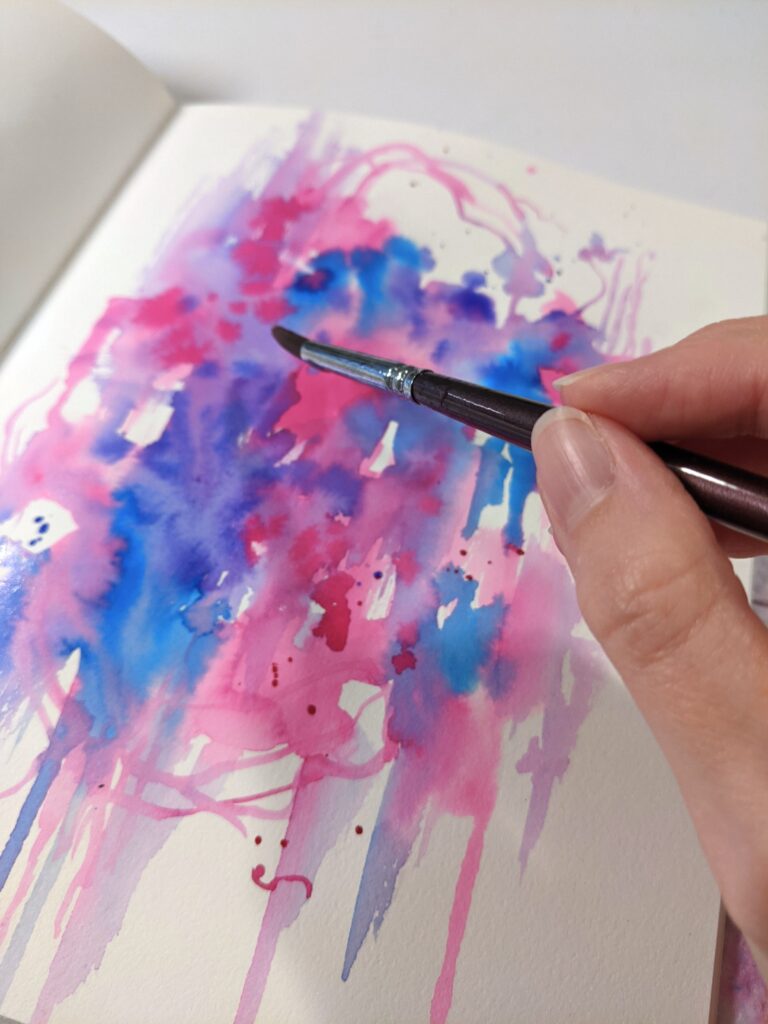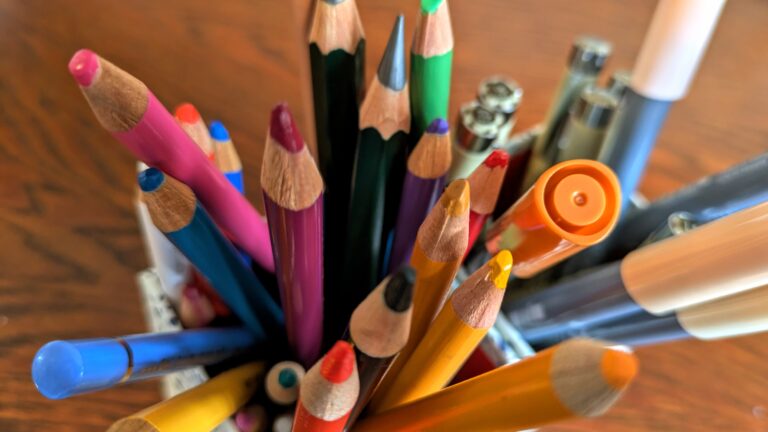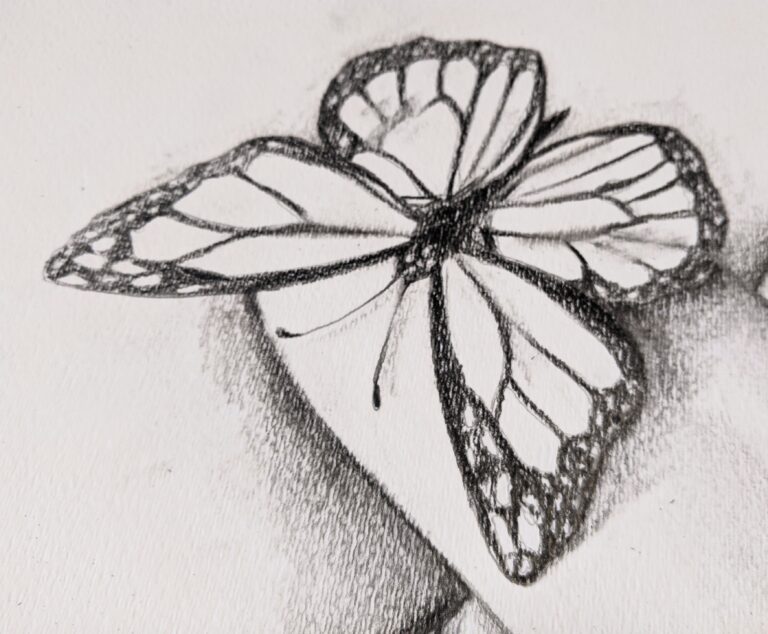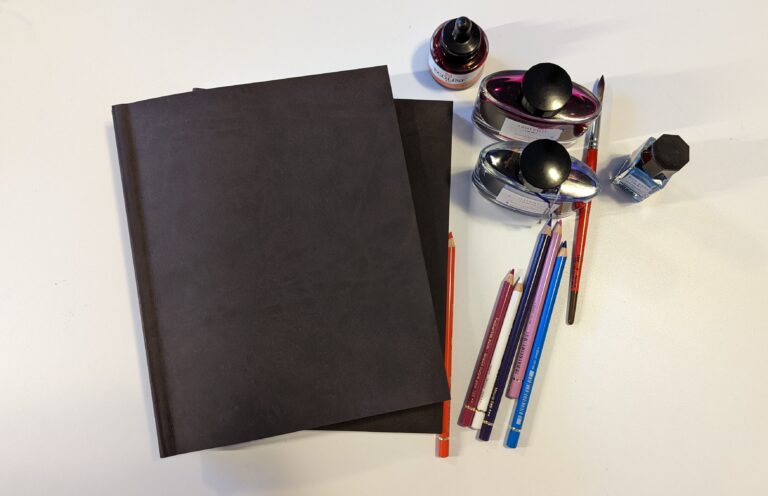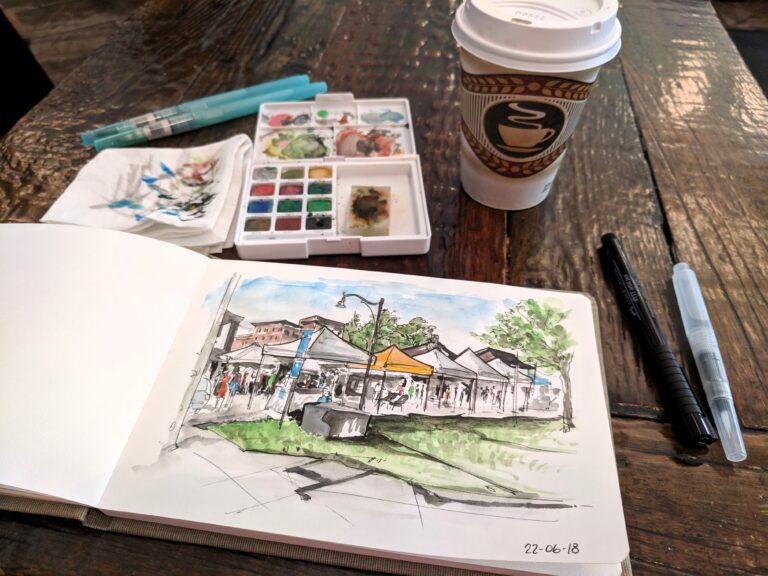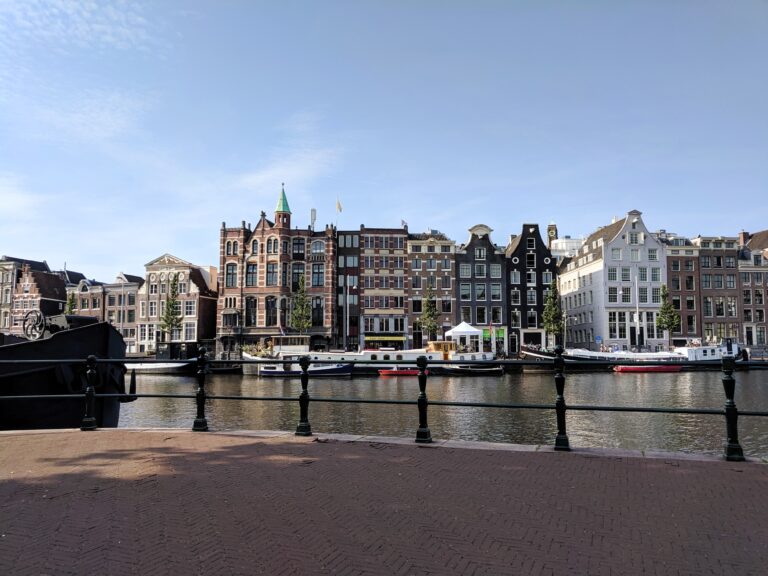Have you ever wondered how other artists are finding great photo references for their paintings? Or maybe you’ve been looking for high-quality instructional videos to learn about a new medium or technique.
When you’re a beginner, you don’t necessarily have a lot of money to spend on in-person courses or books.
Obviously, the Internet is an amazing free resource… However, the search for quality content can often feel overwhelming due to the sheer amount of available information.
Online art learning resources are far beyond what they used to be, even compared to just a few years ago.
So whether you want to learn about art or improve your technical abilities, I’ve compiled this list for you.
My 7 best free online resources for beginner artists
1. Google Arts and Culture
Want to learn about art history and look through entire museum collections? This free online resource is one of the best.
You can browse artworks by themes, art movements, artists, mediums, historical events and place of origin.
The Explore feature is awesome if you need help figuring out what to search for or where to start, as it lets you randomly scroll through the entire website’s content. This makes learning about art history so much fun!
You can even view works by colour or look at fun thematic slideshows with voiceovers.
On top of that, they have an app version for your smartphone. Google Arts & Culture isn’t as comprehensive as an academic course about a specific artist or movement, but it does a great job of summarizing the main points.
Trying to describe this beast of a resource probably won’t do it justice, so go take a look for yourself!
2. Pixabay and Unsplash
Websites like Pixabay and Unsplash provide millions of high-resolution royalty-free stock images for commercial use, like the featured image above. These images include photographs, illustrations and vector art amongst other file formats.
I’m sure if it were possible, painting from life or taking our own reference pictures for every single artwork would be ideal… Unfortunately, that’s unrealistic for beginners and professionals alike.
On Pixabay, you can even download videos, sound effects and music. If you plan on becoming a content creator, those can be useful for making videos on a low budget. Take a look at their license for more information.
Alternatively, Unsplash’s license includes both commercial and non-commercial files. So you just have to read the fine print before you download anything.
So why should you care about a royalty-free license? Because as artists, we don’t want to worry about infringing anyone’s copyrights.
Using any random picture you find on the internet for a “study” is completely fine as long as you don’t plan on selling it or sharing it online. This is especially important if your work is almost identical to the original photo.
You see, these photographs belong to the intellectual property of their creator (if you live in Canada, check out the Copyright Law of Canada). A way around this is to ask for written permission from the author to use his or her picture, that is if you’re lucky enough to find them.
3. Pinterest
Described as a visual search engine, Pinterest is a useful tool for any creative.
Look for painting ideas and get inspired by looking up keywords in the search bar. You’ll be shown a series of “Pins”, which is just a fancy word for images or videos relating to your keyword(s). You can save Pins to a Board, an album of sorts, where you might store Pins of a similar nature.
For example, I have different Boards for home decor, my favourite artwork, painting ideas, art studio organization and even… recipes!
You can share, like and comment on people’s pins, although this isn’t a feature I often use. Some pins include a link to an external webpage, such as a blog, artist portfolio and other social media platforms.
Pinterest is completely free, but you’ll need an account to gain full access. Eventually, you could also create a business account if you want to promote your art and get analytics.
The only cons are the ads or what they refer to as “sponsored” pins and the shopping feature. You can access this feature by searching for something and filtering your results by “products”.
Unless it’s a reputable site, I would avoid buying from an unknown seller.
4. YouTube Artists
Nowadays, a lot of YouTube art channels are expertly produced by content creators. Finding free art-related educational content has never been easier.
Over time, I’ve subscribed to a fair list of amazing artists and teachers who have helped me along the way.
From tutorials to art supply reviews, there’s an art channel for every question you’re probably thinking about as a beginner.
For learning the fundamentals or taking part in hour-long live streams about diverse art topics, I recommend both Proko and ArtProf.
Another type of video content that seems to be becoming more popular these days is an artist sharing his or her entire creative process.
My favourite artist channels are Emily Hughes (oil and gouache painting), Fran Meneses (illustration), Uncomfy (polymer clay), Chelsea Lang (oil painting), Sketchbook Skool (advice and drawing), I am Detour (murals) and Studio Wildlife (acrylic wildlife painting).
5. Creative Pep Talk Podcast
Having just published his 481th episode on November 27th 2024, this podcast is a all-in-all
great moral booster for any artist.
Andy J. Pizza, the podcast host, is an author and illustrator whose voice is just naturally uplifting. On his podcast, he discusses topics like vulnerability, productivity, inspiration, how to overcome self-doubt and much more.
All of the thumbnails for each episode are made by him. They’re super cute and so colourful!
I recommend you listen to his podcast while you’re sketching. I’ve done that several times and I’m always looking forward to listening to a new episode next time I’m in my studio.
6. Reddit
If this is your first time using Reddit, it can take some getting used to. It allows you to keep anonymity if you so desire to while discussing diverse topics and finding communities of people who share a common interest, similar to a forum.
If you don’t want to create an account, you can still search for your question on Google and add “Reddit” at the end of your search prompt.
Subreddits cover a particular topic on Reddit, and my go-to is r/ArtistLounge which has over 250,000 members. As a beginner artist, chances are someone on Reddit has already asked a similar question and the community has answered it.
My overall experience on this platform has been very positive. Most people seem to genuinely want to help each other.
Here are some interesting discussions I recommend as a new artist :
- How do you practice your art?
- Random painting tips and tricks
- How do you stop comparing yourself to others?
7. Library Ebooks
Are you a member of your local library? If so, check if they can give you access to free ebooks.
In my case, I can connect to multiple external services when I log into my library’s online portal, which hosts several great art ebooks. All I have to do is use keywords in search to find the ones I’m looking for.
Permissions vary depending on the online web service. Some ebooks can be read using your library card number to “borrow” them for a determined amount of days or “place a hold” until they’re available again, while others can be downloaded in full or a limited amount of pages, printed or e-mailed.
Key Takeaways
Finding quality online resources that also happen to be FREE isn’t always easy. That’s why I’ve compiled this list to help new artists like you.
My 7 favourite free online resources for beginner artists are:
- Google Arts and Culture: Fun way to browse artworks from museum collections and learn about art history.
- Pixabay and Unsplash: High-resolution royalty-free stock images for commercial use.
- Pinterest: A visual search engine to find inspiration for future art-related projects.
- YouTube Artists: From tutorials to art supply reviews, there’s an art channel…
- Creative Pep Talk Podcast: Great moral booster for any artist, discussing subjects relating to vulnerability, productivity, inspiration and how to overcome self-doubt.
- Reddit: Forum-type, discuss diverse topics and find communities of people who share a common interest.
- Library Ebooks: Connect to multiple external services when you log into your library’s online portal, which hosts several great art ebooks.

